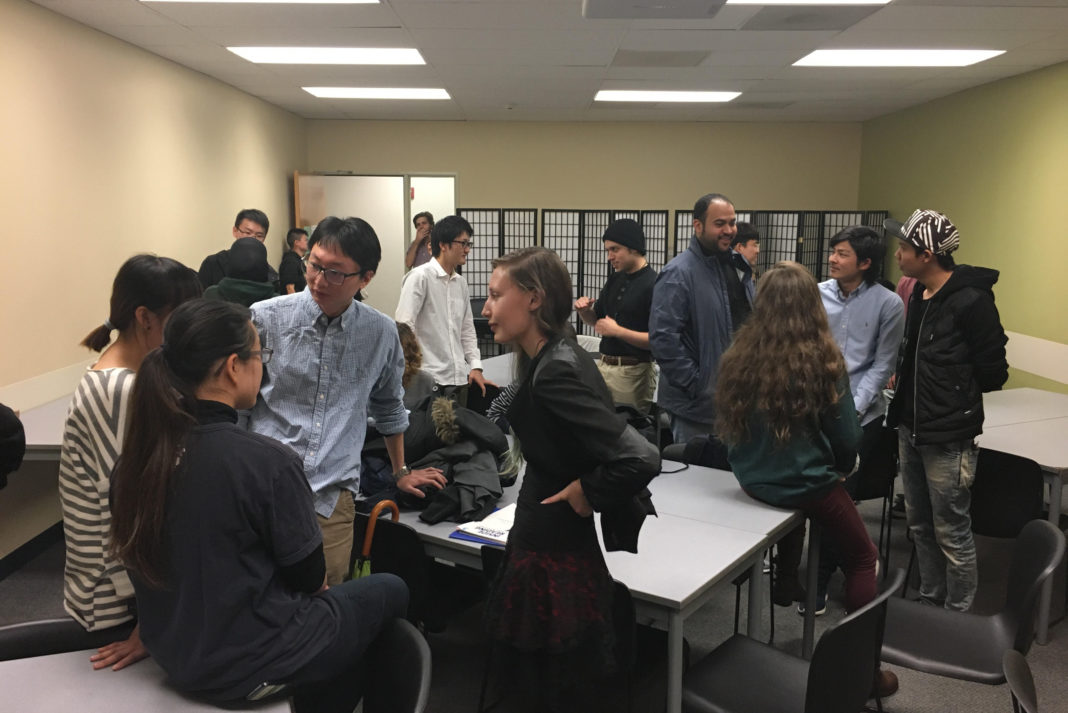Being a sanctuary campus does not mean merely washing hands of direct involvement in Immigration and Customs Enforcement activity. It means providing a safe space for everyone in the community to live and contribute meaningfully to the governance of the community, regardless of how stigmatized they are. Whether we are talking about first-generation immigrants or the local houseless population, nobody should face harassment at a sanctuary campus on the basis of documentation or length of residency.
And yet, the camps of the unhoused near Portland State are regularly scrutinized, surveilled and shuttled from spot to spot. What is the purpose of this? This expenditure of resources does not solve the underlying problem but merely moves it locally. Since students and taxpayers of Oregon who fund these efforts, we should all be concerned these institutions seem content to spend our tuition and paychecks on an endeavor with no exit strategy and serious human consequences.
Moreover, who benefits? Wouldn’t it be less expensive to establish permanent, sustainable areas of residence for the houseless near campus? One might envision the university’s schools of social work, architecture, public health, pre-medical studies, and more benefiting from an ongoing positive relationship with these newly recognized and respected residents, many of whom have serious health problems that are not adequately accommodated by the current healthcare system. Furthermore, the housing crisis in Portland has produced frightening racial disparities, particularly for Black Americans, not only in overall residency figures but also in the houseless population. If PSU and the federal government are serious about pursuing innovative solutions to social problems, this is an option to consider seriously for both reducing policing costs and offering unique trans-class opportunities to our hardworking students and faculty.
Students and faculty on our sanctuary campus also feel pressure. With room and board hovering near $12,000 per year, the average rate of nearby off-campus housing and transit climbing even higher, tuition climbing at near double-digit rates, and salaries for adjunct faculty at a mere $25,280 annually, many members of our community do not have the resources to house themselves on or near campus.
Doubtless, there are many students in Portland’s community colleges that do not make it into PSU or other universities because of houselessness and poverty. Because of this, many members of our community live far away from campus, and as a result, do not stick around after classes and other obligations are finished. This is an important explanatory factor in last year’s 2016 Sexual Misconduct Campus Climate Survey, which reported, “Less than half of the student participants reported having a positive sense of community on the PSU campus…Only a third (33%) of the students felt connected to the campus…Three quarters (75%) of the respondents indicated that they did not feel they had a say about what goes on at PSU…Fifty-seven percent (57%) of students said they did not feel like a member of the campus.”
If we are serious about addressing the void of community at PSU, the university needs to make truly affordable and stable housing available to the entire community. Doing so will not be easy. Structurally, PSU is placed in a terrible place for addressing this issue: downtown is the most expensive part of the city to live indoors. Under the DeVos-Trump administration, funds will surely tighten, and many departments will feel the burn of deep budget cuts.
However, if we want PSU to be a world-class university, the institutions, donors, and every level of government must invest less in sports stadiums and business schools, and more in the basic foundation of community: affordable housing. The possible benefits would be remarkable, ranging from higher enrollment, retention, and thus more tuition being paid, to the less quantifiable aspects of livability and actual engagement with one’s education.
If my classmates weren’t working 40+ hours a week or taking 19 credits including organic chemistry while working for minimum wage, it stands to reason their educational outcomes and ability to contribute in and out of the classroom environment would greatly increase. That translates to a better college experience, fewer mental health problems, and improved career prospects.
All this aside, ICE raids are still ongoing around PSU. It seems this so called sanctuary campus”declaration has too little teeth to be meaningful, even within the narrow definitions of the phrase. However, we can and must do more to protect and provide community. It is inspiring and heartwarming to see PSU’s administration take such a bold rhetorical stance on the issues of immigration and the right to self-determination. Now it is time to back those brave words with decisive action.
Further Reading
- http://www.oregonlive.com/education/index.ssf/2011/09/oregons_homeless_student_popul.html
- http://news.streetroots.org/2014/11/10/new-normal-nearly-20000-homeless-students-oregon
- http://www.opb.org/news/article/many-students-are-young-in-college-and-homeless/
- http://www.oregonlive.com/portland-homeless/
- http://www.opb.org/radio/programs/thinkoutloud/segment/oregon-portland-african-americans/
- https://suburbanstats.org/race/oregon/portland/how-many-black-or-african-american-people-live-in-portland-oregon
The Libertarian Slant is an ongoing column by Jordan Olson.






